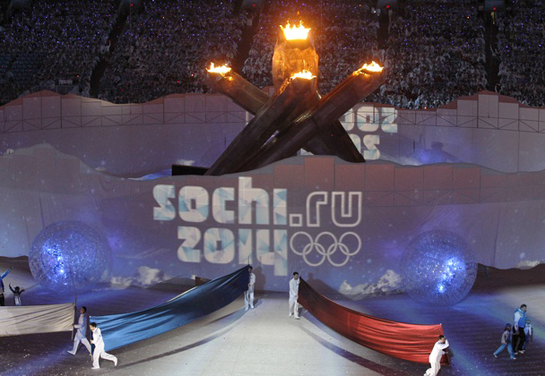Nate Berg
September 15th, 2011
The seaside resort town of Sochi, Russia, is preparing to play host to the 2014 Olympic Winter Games. Much of that preparation consists of building—arenas, athlete housing, roads and so on. But with an urban population of about 350,000, transforming Sochi into an Olympic village also means tearing down some of the city that’s already there. With the games less than two-and-a-half years away, that’s already led to the eviction and forced relocation of some locals.
About 1,000 families are being forcibly removed from their homes and neighborhoods through the government’s use of eminent domain, according to recent reports. One recent report by Agence France Presse finds that those evictions aren’t going as smoothly as the government might like. In some cases, locals have been given just hours notice before their homes are demolished to make way for sports venues and road projects.
Officials say that displaced locals are being compensated for their homes, but that’s only the case for those that can prove ownership. Many cannot.
The specter of evictions in Sochi has been looming for years. Homeowners in the area sent a letter of protest to Russian and Olympic officials in 2008 calling for protection of their constitutional right to land, and fair compensation for any land that has to be taken in order to host the Olympics.
In theory, the Russian government agrees, but in practice it hasn’t had much success in appeasing the displaced. The AFP found one woman who is being evicted from her home to make way for a new road project that will connect the city to its Olympic venues. The government paid her the equivalent of about $55,000, which is not enough to buy even a small apartment in the suddenly-expensive future Olympic host city. She was also offered an exchange home to replace her house, but it’s about 10 kilometers from the city and her previous neighborhood. She declined to take it.
Olympic building projects almost always require these sorts of displacements. Beijing, host of the 2008 Olympic Summer Games, displaced or evicted an estimated 1.5 million people to build its showpiece arenas – though the Chinese government maintains that only 6,000 families were involved in Olympic-related relocation programs.
In Rio de Janeiro— host of the 2016 Olympic Summer Games as well as the 2014 FIFA World Cup—similar displacements are on the rise. Various blogs and citizen media sources are reporting on thousands of evictions in the city, both in the Olympic zone and in the city’s many slum areas.
On a trip to the city last November, I visited a small favela right next to the site where the Olympic park will be built. The 600 households of the Vila Autódromo are facing eviction ahead of the games, despite locals’ objections. Their village and the adjacent area will be developed into the roughly 90-acre Olympic park, master-planned by AECOM. As in Russia, the government in Rio is offering new homes for the soon-to-be-displaced residents of Vila Autódromo, but residents told me that the replacement homes are so far out of town that they’d face an additional two hours of commute time to work. They’d also face leaving the community they’ve called home for decades.
“We’re not talking about the walls,” said resident Altair Guimaraes, through a translator. “We’re talking about the lives we’ve led here.”
But in the face of major sporting events—and the inherent positive PR they provide to host cities—the displacement and disruption of a few communities is only a minor concern to the officials running these events. For all the potential events like the Olympics offer cities in terms of placemaking, infrastructure development, and international reputation, the costs to long-established neighborhoods and communities are often harder to bear.
Fonte: The Atlantic Cities


Leave a Reply